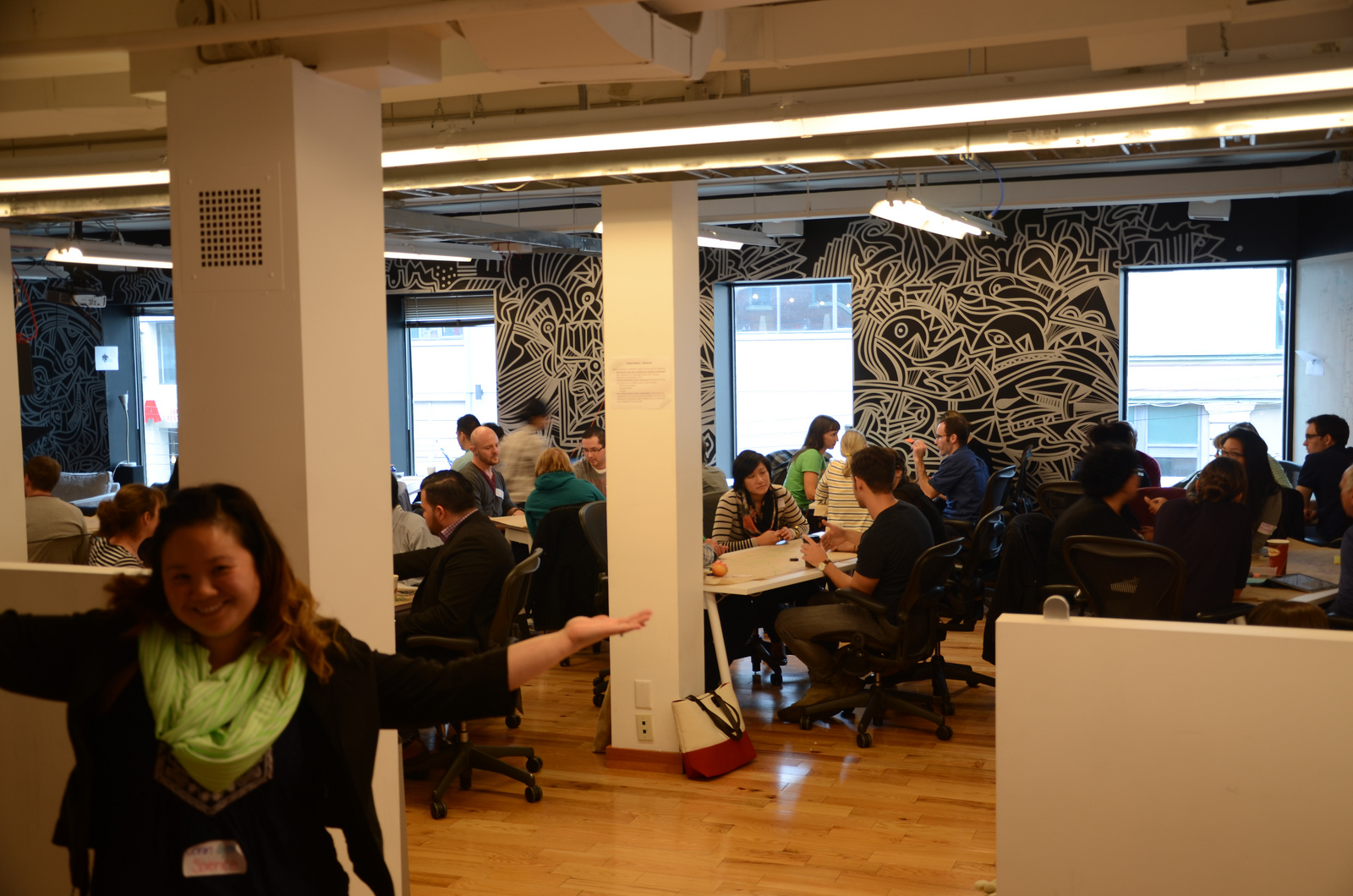On October 5, the first ever EdCamp Design Thinking happened at Bitmakers Lab in Toronto, Ontario. This was an opportunity for a group of educators, designers, entrepreneurs and learners to talk about “how might design thinking impact the future of education?” The day was rooted in participant-driven conversation, framed on design thinking with a distinct focus on taking questions to action.
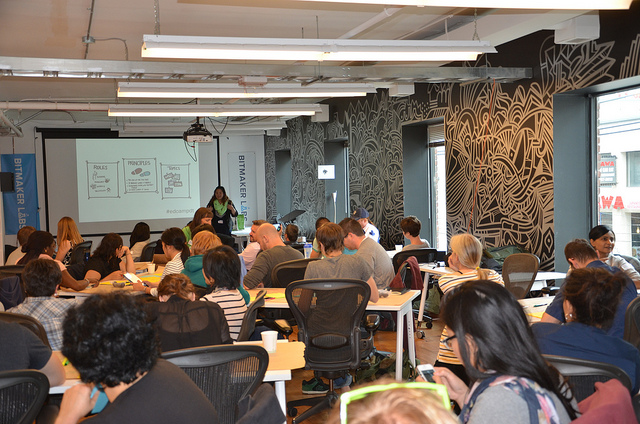
In 2009, EdCamps were born out of the movement to “take back PD” in Philadelphia by a group of educators who were frustrated with mandated professional development and wanted to connect with educators to talk about what mattered to them. By their very nature of being an unconference, EdCamps are a platform for vibrant conversation and generate boatloads of inspiration and enthusiasm for the face-to-face participants and the ones following in the Twitter back channel. EdCamp Design Thinking was no different and intentionally gave participants a bias towards action. As the organizing committee, we wanted to balance the space for participants to lead conversation and to demonstrate a bit of the design thinking process. Participants were taken through “The Six Phases of Design Thinking” from the Henry Ford Learning Institute and the “Design Thinking Oreo Cookie” exercise from Exhibit Change to get a taste of what design thinking is about. This set up participants for the conversations that followed.
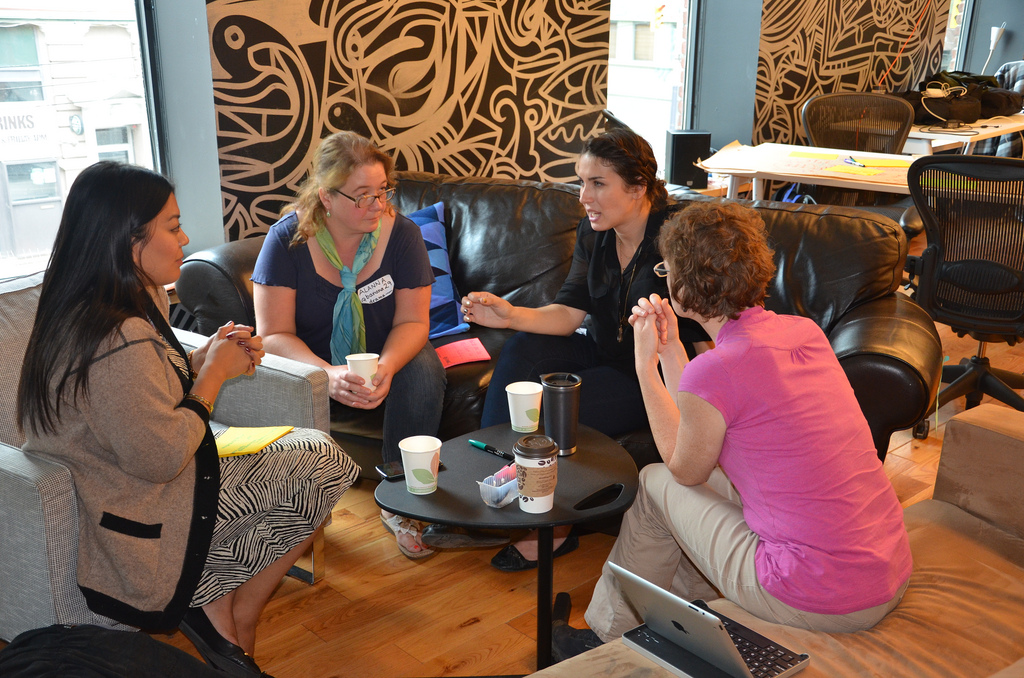
To build energy and a sense of what people were already talked about, the group was led through World Café. World Café is designed to encourage the kinds of conversations we have at cafes; the ones that we can’t pull ourselves away from and are fueled by caffeine and passion. In World Café participants moved to another table to connect with new people, all together everyone would have talked to 7 new people within 40 minutes and together are revealing the themes and patterns within the room. World Café is a tool to leverage the conversation that is happening now; the same group of people will never be in the same place and same time together again. In World Café, participants explored 2 big questions and then summarized the big ideas. The questions were open-ended and designed to prompt conversation, participants were in charge of where the conversation went from there.
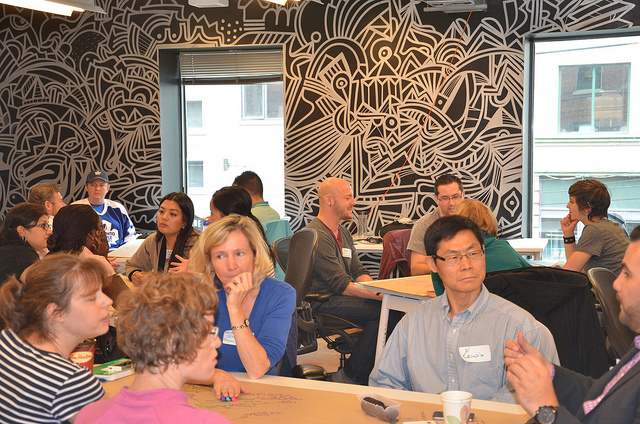
Following World Café, participants proposed their own session for Open Space. Open space is designed to have participants with something on their mind a time and place to discuss with others who might be thinking something similar. The topics ranged from “How to Assess the Process versus the Product?” to “How to create a culture of risk and failure?” to “How do we engage the Ministry of Education in redesigning EQAO for special education students?” – each question arose from the participants who didn’t know how to tackle these challenges alone and wanted to talk to others.
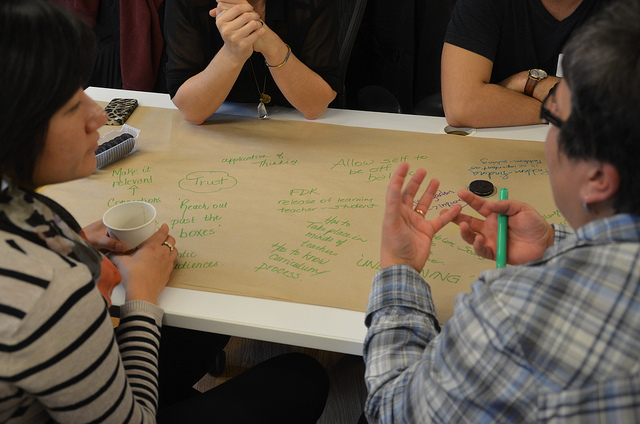
After a morning of fruitful conversations, the group had Salad Club. Salad Club is a collaborative and participant-driven way to bring lunch together in a beautiful and spontaneous way that can only happen that way once, much like a World Café. Everyone was asked to bring one fruit or vegetable and one protein and together we compiled a lovely salad bar that was suited to all dietary constraints. It is always magical to watch how easily Salad Club can come together and the variety that is created. It is really a wonderful metaphor for trusting people to bring what they can to fuel others; we are more together than we are apart.
The afternoon began with an energizer called “Yes, and!” This activity is meant to generate a positive ideas environment. We are so used to hearing someone’s idea and then saying, “yes, but…” “Yes, and!” let’s everyone feel like they are contributing, like their ideas are actually being heard and eliminates the feeling that one idea is the solution. This activity led us into the afternoon of more Open Space conversations.
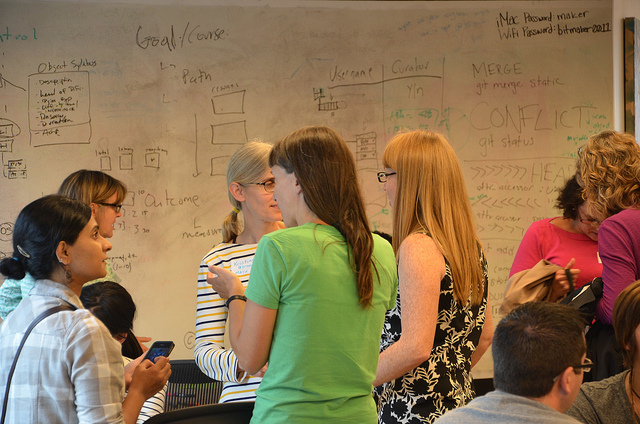
I left the day feeling like a lot of seeds had been planted for deeper discussion. For some people this was their first EdCamp or their first introduction to design thinking and in some cases both, so I anticipate that it was a lot to digest. EdCamp Design Thinking was a taster of what design thinking could be like in education and I hope that after a bit of time to reflect that the ones eager for their next taste will reach out to see what’s next in their journey.The group was a little slow to pick up on ideas, many excited to carry on conversations that started in the morning and a few that wanted time to connect around new ideas. The afternoon passed quickly with some more action-oriented discussion of how might we apply design thinking in schools, education, for our own practice and learn from places where it is already happening. We closed the day with a circle and a symbolic simultaneous clap to indicate that we were on the same page.
I imagine that as we keep doing EdCamp Design Thinking that it will take on its own momentum and begin generating the conversations that will propel design thinking to the places that it needs to be.
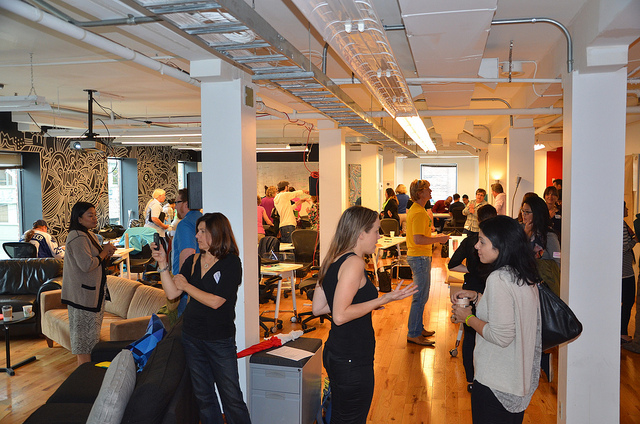
It is always a delight when the conversation keeps going and other perspectives are shared, you can find a bit more out about the day from these archives of the day.
Tweet Archive of the Day – Storify
Richland Academy – Experiencing Design Thinking Ed Camp
Heidi Siwak – Class 61 begins inquiry world café
Communication, Communication, Yes, and….
[contact-form][contact-field label=’Name’ type=’name’ required=’1’/][contact-field label=’Email’ type=’email’ required=’1’/][contact-field label=’Website’ type=’url’/][contact-field label=’Comment’ type=’textarea’ required=’1’/][/contact-form]
